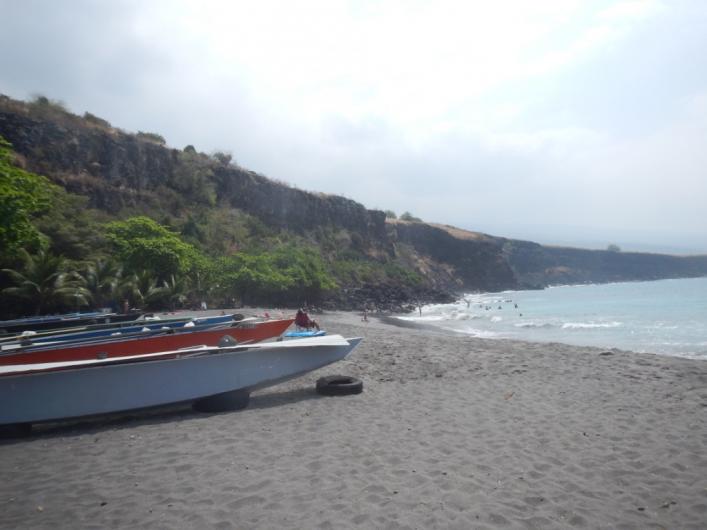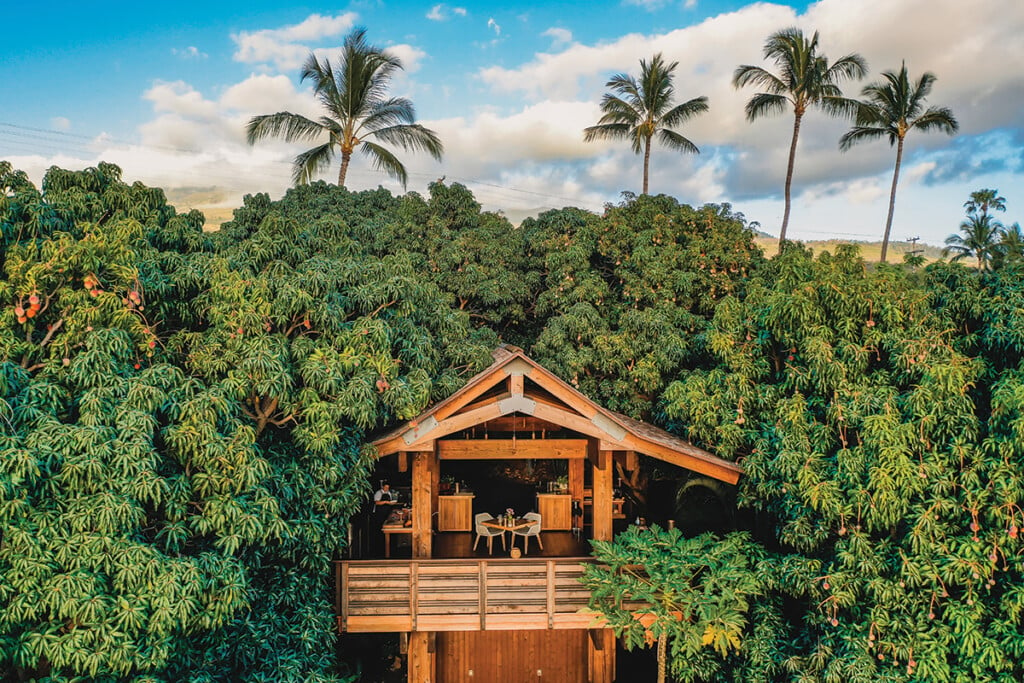Hookena Beach Park on Hawaii Island is officially open again

The salt and pepper sands of Hookena Beach Park saw its first sunbathers in four months following a precautionary closure by Hawaii County and State Department of Health officials. The South Kona beach—popular with residents and visitors alike for swimming, boogie-boarding, kayaking, surfing and camping—has been closed to the public since November 4, 2015 after several early cases in the dengue fever outbreak had ties to the park. As of now the park is deemed safe and reopened on March 1.

A recent visit to the park following the opening found dozens of people enjoying the sun and waves. The beach park, located at the end of a steep road and enclosed by a cliff, is secluded and the heat radiates off the black flecks of lava in the sand. Waves crash close and an abundance of rocks underwater relegate ocean-goers to the north and south ends of the beach. Two tents of campers were already taking advantage of the newly reopened campsite and visitors seemed more concerned about a contained fire in the field further up the road—which helicopters were helping to douse—than the threat of dengue.

A posted billboard reminds visitors to be cautious and wear bug spray in early morning and late afternoon when potentially dengue-carrying mosquitoes tend to be most active. But, otherwise, one might have never known that three groups of park visitors were likely bitten by dengue-infected mosquitoes near here.
The decision to reopen the park followed several months with no new cases originating from Hookena. The last reported cases there occurred on November 11, 2015, according to the Hawaii County Civil Defense’s website. The county also took actions to spray for mosquitos in areas around the park before reopening.
In addition to being a popular site for recreation, Hookena is also the site of one of Hawaii Island’s last remaining historical fishing villages, predating the arrival of steamships in the Islands in the early 1800s that eventually signaled the decline of this way of life. The remnants of an old commercial steamship pier still jut out above the waves on the north side of the beach. A local community organization, Friends of Hookena Beach Park, comprised of original fishing village descendants strives to “reposition the beach at the center of the community’s cultural and economic life.” The organization rents kayaks and camping gear at the beach.

Dengue is a tropical disease transmitted by infected mosquitoes with symptoms ranging from fever, severe headaches, muscle pain and rashes to issues with blood clotting and low blood pressure. It is a serious illness and there are no known vaccines. Throughout the outbreak, the Hawaii State Department of Health’s website has maintained “the Big Island and the rest of Hawaii remain safe destinations for visitors and residents,” and that the best way to avoid dengue on Hawaii Island is to avoid being bitten by mosquitoes.
Tropical illnesses are an unfortunate part of tropical living and vacationing, but fortunately, instances of dengue in Hawaii are relatively rare. The mosquito-borne tropical illness, is not usually found in the state but has been brought to the Islands by infected travelers in the past. The last outbreak of locally-acquired dengue occurred on Oahu in 2011.
The recent cluster of infections has been relegated to Hawaii Island and cropped up last September, ultimately including 235 confirmed cases, of which only 25 were visitors, according to the Health Department. No new cases had been confirmed at press time since February 13.
The lack of new cases, however, does not mean that the outbreak is over as infected mosquitos may still be present—the outbreak will be officially over when no new infections are reported over a prolonged period of time. Other areas around Hawaii Island—including Milolii Beach Park, closed in December, and Waipio Valley’s access road, closed since January—remain closed as the necessary time has not passed since recent reported cases in those areas.
For more information visit the state’s page on dengue updates here.


